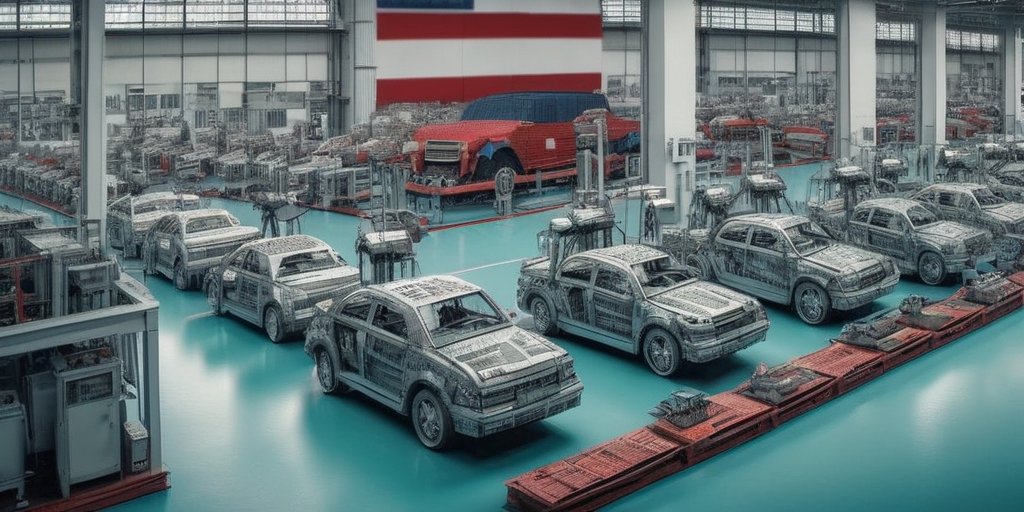In a significant move, President Donald Trump has announced a new import tax of 25% on foreign cars and car parts, a decision that caught many major automakers off-guard. On the morning following the announcement, shares of car manufacturers plunged, reflecting investor anxiety about the potential chaos this policy could introduce into the automotive sector. Companies like Toyota, BMW, and Jaguar Land Rover, which rely heavily on the international supply chain, faced immediate financial repercussions, losing billions in market value, while American giants such as General Motors experienced a more than 7% decline in stock value.
Tesla, known for its manufacturing operations in the US, remained surprisingly stable in the market; however, CEO Elon Musk cautioned that even Tesla will not escape the implications of the tariffs. He emphasized that every vehicle involves a complex supply chain that includes international parts, and the tariffs could lead to an increase in costs across the board, potentially raising prices of vehicles by thousands of dollars.
Estimates suggest that the new import taxes could affect imports worth $300 billion to $400 billion annually, impacting nearly 10% of total US imports. This upheaval could result in increased vehicle prices ranging from approximately $4,000 to $12,000, depending on vehicle models and their sourcing.
Many leading automakers, such as Toyota, which has ten production plants in the US, might redirect some manufacturing efforts domestically as an adaptation strategy. However, economists predict that this could still lead to price increases and reduced production levels for trading partners in regions like Germany and the UK, known for their premium luxury vehicles. In response to the tariffs, Italian luxury carmaker Ferrari announced a 10% price hike to offset the anticipated costs.
As these tariffs come into play, with the enforcement starting as soon as April 3, American consumers may face fewer choices due to manufacturers potentially withdrawing models from the US market. Consequently, companies like Jaguar Land Rover and Porsche, which lack significant manufacturing in the US, could witness a decrease in production domestically, with ripple effects on jobs overseas.
During his first term, Trump initiated discussions on automobile tariffs with the promise of strengthening America’s manufacturing base. These latest measures follow a series of earlier tariffs on goods from China, and levies on steel and aluminum imports from Canada and Mexico. The White House has indicated that certain trade agreements with Mexico and Canada will remain unaffected for the time being, as preparations for enforcing the tariffs are finalized.
